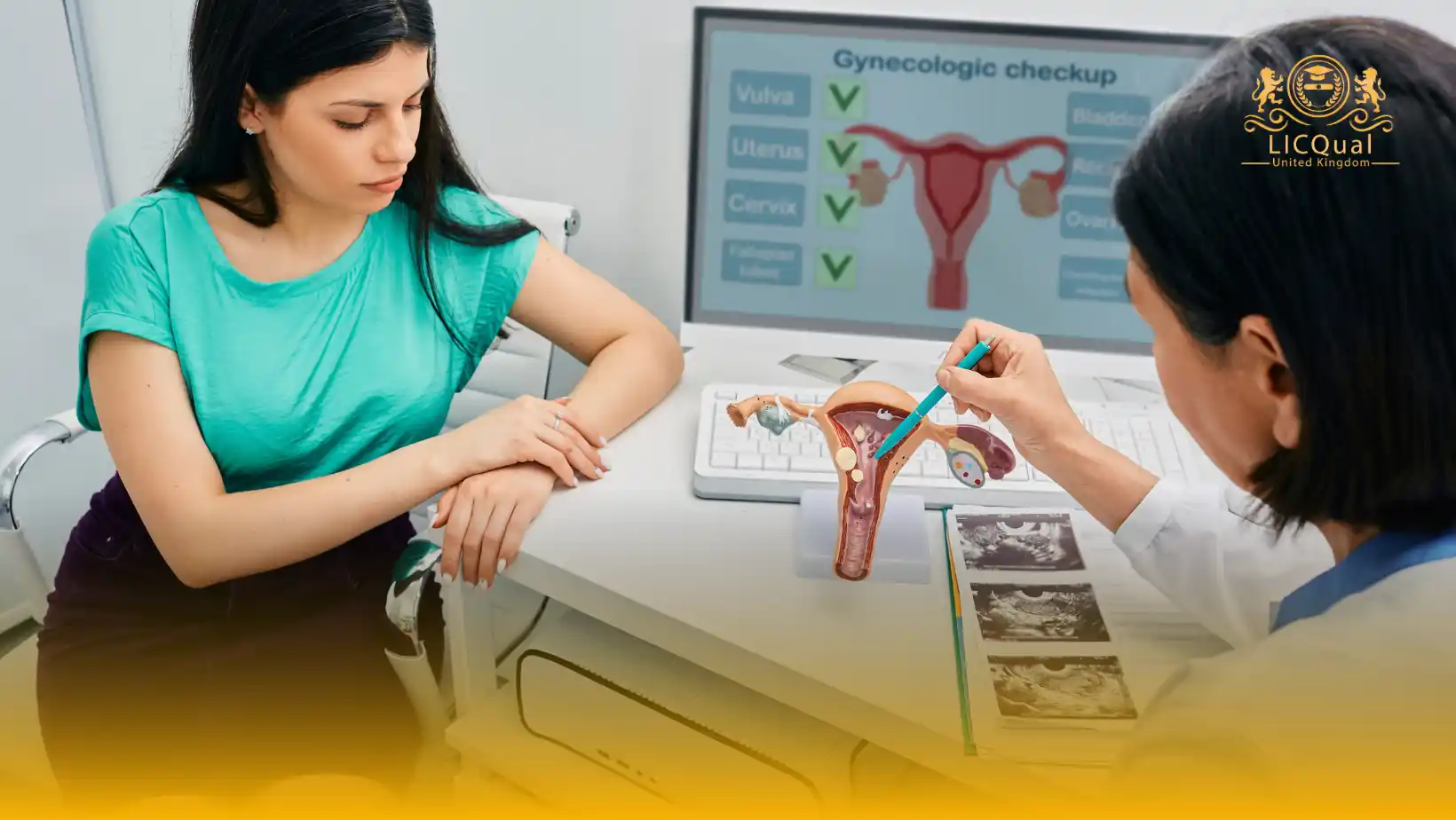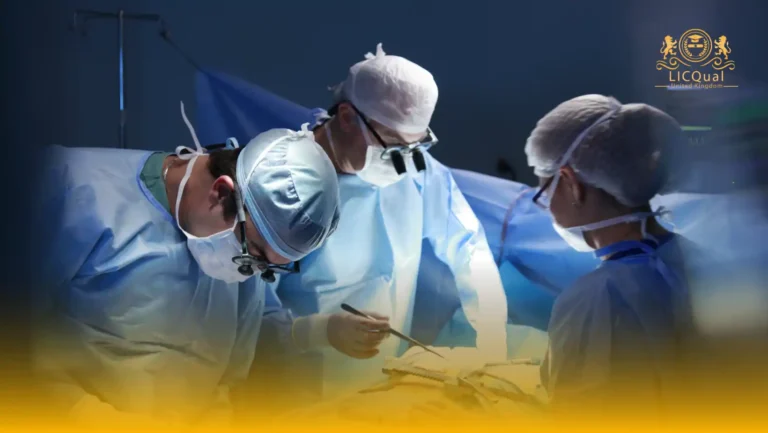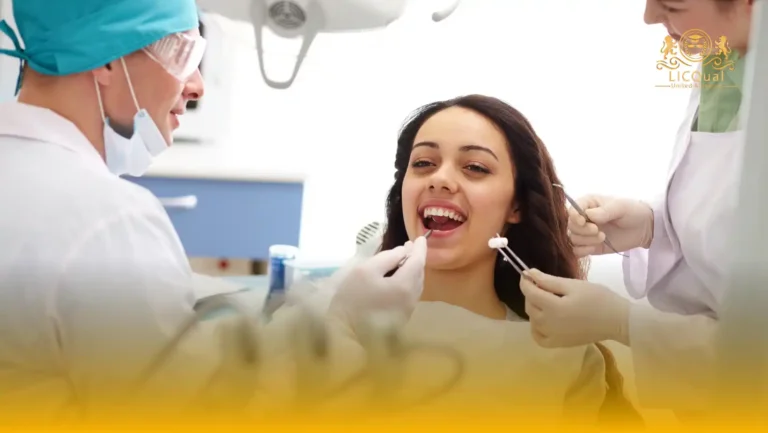The LICQual Level 6 Diploma in Reproductive Endocrinology and Infertility (Dip REI) is an advanced qualification designed for healthcare professionals, clinicians, and medical practitioners who wish to specialize in the diagnosis and management of reproductive health and infertility. This diploma is not intended for fresh candidates; it is tailored for experienced professionals aiming to enhance their career prospects, broaden their specialized knowledge, and strengthen their Continuing Professional Development (CPD).
Learners undertaking this programme will gain comprehensive expertise in reproductive endocrinology, fertility assessment, assisted reproductive technologies (ART), and advanced clinical management strategies. The course covers hormonal regulation, infertility diagnostics, IVF and related procedures, reproductive surgery, ethical and legal considerations, and personalised patient care. Learners will develop the skills to assess complex reproductive cases, implement evidence-based interventions, and provide effective counselling and support to patients and families.
Centres delivering the LICQual Level 6 Diploma in Reproductive Endocrinology and Infertility are required to maintain the highest standards of training. This includes employing competent and qualified staff, providing access to modern clinical facilities, laboratories, and learning resources, and ensuring all necessary materials are available to support learner success. Such professional infrastructure guarantees a rigorous, practical, and engaging learning environment, enabling learners to apply theoretical knowledge effectively in real-world reproductive and fertility settings.
By completing this diploma, learners will enhance their professional credibility, improve patient care in reproductive health, and contribute effectively to clinical teams and fertility services. Whether aiming to deepen clinical expertise, participate in research, or assume leadership roles, this qualification equips learners with the knowledge, skills, and recognition necessary to advance their careers in reproductive endocrinology and infertility practice.
Course Overview
Qualification Title
LICQual Level 6 Diploma in Reproductive Endocrinology and Infertility (Dip REI)
Total Units
6
Total Credits
120
GLH
480
Qualification #
LICQ2200951
Qualification Specification
To enroll in the LICQual Level 6 Diploma in Reproductive Endocrinology and Infertility (Dip REI), applicants must meet the following criteria:
|
Qualification# |
Unit Title |
Credits |
GLH |
|---|---|---|---|
|
LICQ2200951-1 |
Foundations of Reproductive Endocrinology |
20 |
80 |
|
LICQ2200951-2 |
Assessment and Diagnosis of Infertility |
20 |
80 |
|
LICQ2200951-3 |
Assisted Reproductive Technologies (ART) and Clinical Interventions |
20 |
80 |
|
LICQ2200951-4 |
Reproductive Surgery and Therapeutic Interventions |
20 |
80 |
|
LICQ2200951-5 |
Research, Evidence-Based Practice, and Innovation in Reproductive Medicine |
20 |
80 |
|
LICQ2200951-6 |
Professional Practice and Continuing Development in Reproductive Medicine |
20 |
80 |
By the end of this course, learners will be able to:
Unit 1: Foundations of Reproductive Endocrinology
By the end of this unit, learners will be able to:
- Critically evaluate the physiological and hormonal regulation of the reproductive system.
- Analyse normal reproductive function and identify common endocrine disorders affecting fertility.
- Demonstrate understanding of ethical, legal, and professional considerations in reproductive endocrinology.
- Assess the contribution of reproductive endocrinology to improving fertility outcomes and patient care.
Unit 2: Assessment and Diagnosis of Infertility
By the end of this unit, learners will be able to:
- Conduct comprehensive fertility assessments for both male and female patients.
- Interpret hormonal, imaging, and laboratory findings to inform diagnostic decisions.
- Identify underlying causes of infertility and associated comorbidities.
- Apply critical thinking to develop personalised treatment plans based on assessment outcomes.
Unit 3: Assisted Reproductive Technologies (ART) and Clinical Interventions
By the end of this unit, learners will be able to:
- Critically appraise ART procedures including IVF, ICSI, and embryo transfer.
- Evaluate ovulation induction, controlled ovarian stimulation, and sperm retrieval techniques.
- Apply evidence-based practices to optimise ART outcomes and ensure patient safety.
- Demonstrate understanding of laboratory and clinical management of gametes and embryos.
Unit 4: Reproductive Surgery and Therapeutic Interventions
By the end of this unit, learners will be able to:
- Assess the role and application of surgical procedures in infertility management.
- Evaluate minimally invasive and advanced surgical techniques in reproductive care.
- Apply preoperative and postoperative management strategies to improve patient outcomes.
- Integrate patient-centred care principles into surgical fertility interventions.
Unit 5: Research, Evidence-Based Practice, and Innovation in Reproductive Medicine
By the end of this unit, learners will be able to:
- Critically analyse contemporary research and emerging trends in reproductive endocrinology and infertility.
- Design and evaluate clinical audits, outcome measures, and quality improvement projects.
- Apply evidence-based practice to enhance clinical decision-making and patient care.
- Utilise research findings to inform policy, innovation, and practice improvements in reproductive medicine.
Unit 6: Professional Practice and Continuing Development in Reproductive Medicine
By the end of this unit, learners will be able to:
- Demonstrate professionalism, ethical responsibility, and governance in reproductive healthcare.
- Apply leadership and management skills within fertility clinics and reproductive teams.
- Engage in Continuing Professional Development (CPD) to maintain professional competence.
- Implement reflective practice strategies to evaluate performance and enhance patient outcomes.
The LICQual Level 6 Diploma in Reproductive Endocrinology and Infertility (Dip REI) is designed for healthcare professionals seeking advanced expertise in fertility management, reproductive health, and infertility treatments. This course is ideal for doctors, gynecologists, fertility specialists, nurses, and allied health practitioners who want to enhance their clinical skills, gain practical knowledge, and earn professional recognition. Whether you aim to work in specialized fertility clinics or advance your career in reproductive medicine, this Level 6 Diploma equips you with the expertise to excel.
Doctors and Gynecologists
- Medical doctors specializing in reproductive medicine
- Gynecologists managing infertility and hormonal disorders
- Clinicians providing patient-centered fertility care
- Specialists seeking advanced knowledge in reproductive endocrinology
- Practitioners aiming for UK Level 6 recognized certification
- Professionals enhancing clinical decision-making in fertility care
Fertility Specialists
- IVF and assisted reproduction practitioners
- Clinicians managing ovulatory and hormonal disorders
- Specialists providing advanced infertility diagnostics
- Professionals implementing cutting-edge fertility treatments
- Practitioners aiming to optimize patient outcomes in reproductive care
- Specialists advancing their expertise in fertility medicine
Nurses and Clinical Staff
- Nurses supporting fertility and reproductive clinics
- Clinical staff managing patient care during IVF procedures
- Professionals assisting in hormonal treatments and monitoring
- Healthcare workers providing counseling for infertility patients
- Staff aiming to enhance practical and clinical skills
- Professionals improving knowledge in reproductive health management
Students and Graduates
- Medical and nursing students pursuing reproductive specialization
- Recent graduates aiming for fertility or reproductive healthcare roles
- Individuals seeking postgraduate diplomas for career growth
- Students combining theory with practical clinical applications
- Learners seeking UK Level 6 recognized certification
- Graduates preparing for professional roles in reproductive medicine
Career Advancers
- Healthcare professionals aiming for promotions in fertility clinics or hospitals
- Practitioners seeking leadership or specialized roles in reproductive health
- Professionals wanting recognized certification to validate expertise
- Clinicians enhancing employability and professional development
- Practitioners seeking advanced skills in reproductive endocrinology
- Professionals targeting growth in fertility and infertility services
Research and Academic Professionals
- Clinicians and doctors involved in reproductive health research
- Academics developing teaching programs for fertility medicine
- Researchers exploring advancements in reproductive endocrinology
- Professionals integrating research findings into clinical practice
- Staff aiming to contribute to publications and fertility studies
- Practitioners pursuing academic and clinical growth simultaneously
To deliver the LICQual Level 6 Diploma in Reproductive Endocrinology and Infertility effectively, centres must uphold high standards of professional expertise, facilities, and learning resources. The following requirements are essential:
- Qualified and Competent Staff: Centres must employ experienced clinicians, gynaecologists, endocrinologists, fertility specialists, and healthcare professionals with recognised qualifications. Staff should be capable of delivering both theoretical knowledge and practical clinical guidance.
- Comprehensive Learning Resources: Centres should provide learners with access to up-to-date textbooks, research publications, clinical guidelines, case studies, and digital learning platforms to support evidence-based practice and advanced learning.
- Clinical and Laboratory Facilities: Centres must ensure access to fully equipped fertility clinics, laboratories, diagnostic tools, and simulation facilities to enable learners to practice assessments, interventions, and assisted reproductive technologies (ART).
- Assessment and Evaluation Systems: Centres must implement robust systems for learner assessment, practical evaluations, feedback, and progression tracking to ensure all learners achieve the required competency standards.
- Health and Safety Compliance: Centres are required to adhere to all relevant health, safety, and regulatory standards, providing a safe and professional learning environment for all learners.
- Support for Continuing Professional Development (CPD): Centres should actively support learners in CPD activities, reflective practice, and ongoing professional development in reproductive endocrinology and infertility.
Meeting these requirements ensures that learners receive a high-quality, professional, and engaging learning experience, equipping them with the knowledge, skills, and confidence to succeed in advanced clinical, research, and leadership roles within reproductive medicine and fertility care.
Assessment and Verification
All units within this qualification are subject to internal assessment by the approved centre and external verification by LICQual. The qualification follows a criterion-referenced assessment approach, ensuring that learners meet all specified learning outcomes.
To achieve a ‘Pass’ in any unit, learners must provide valid, sufficient, and authentic evidence demonstrating their attainment of all learning outcomes and compliance with the prescribed assessment criteria. The Assessor is responsible for evaluating the evidence and determining whether the learner has successfully met the required standards.
Assessors must maintain a clear and comprehensive audit trail, documenting the basis for their assessment decisions to ensure transparency, consistency, and compliance with quality assurance requirements.







